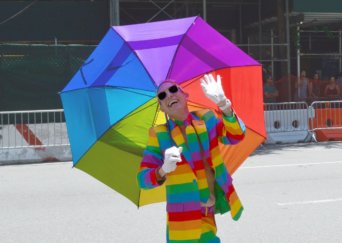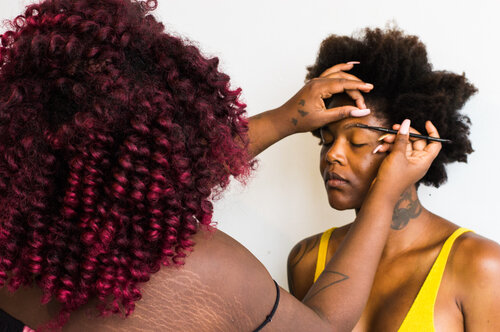- About
- Topics
- Picks
- Audio
- Story
- In-Depth
- Opinion
- News
- Donate
- Signup for our newsletterOur Editors' Best Picks.Send
Read, Debate: Engage.
On Monday, the U.S. Supreme Court delivered a ruling declaring that the 1964 Civil Rights Law prohibits discrimination in employment based on sexual orientation and gender identity. The 6-3 ruling has been celebrated across the country as a monumental victory for the LGBTQ community during a period of great uncertainty and social upheavals.
Monday’s ruling encompassed two cases that were brought before the Supreme Court, which included two lawsuits by gay men who were fired due to their sexual orientation, and a case filed by a transgender woman who was fired after she announced to her employer she was transitioning and will begin attending work in women’s clothes.
The Supreme Court had to determine whether statute VII of the 1964 Civil Rights Act, which prohibits an employee’s discrimination due to their “race, colour, religion, sex, or national origin,” encompasses one’s sexual orientation and gender identity. The conclusion of all but three of the justices was a resounding ‘yes’, and while up until Monday, discriminating against employees due to their sexuality or gender expression was legal in more than 30 states, such an act will now be prohibited across the country.
“An employer who fires an individual for being homosexual or transgender fires that person for traits or actions it would not have questioned in members of a different sex. Sex plays a necessary and undisguisable role in the decision, exactly what Title VII forbids,” states Justice Neil Gorsuch, a Trump nominee, in his majority opinion.
The ruling came as a surprise for many LGBTQ rights proponents, seeing as two of the court’s conservative justices, who historically did not exhibit much empathy for LGBTQ rights, had joined the liberal justices in the decision to undergird protections for queer Americans.
In doing so, the justices had dealt a blow to the Trump administration’s crusade to curtail LGBTQ rights in all spheres of life, which primarily targets transgender and gender non-conforming people.
In addition to effectively banning trans-Americans from serving in the military and depriving trans students from enjoying equal rights at school, the Trump administration announced an official policy last week which removed protections from LGBTQ people in the healthcare system. Most notably, the recent decision by the administration will permit insurance companies, healthcare providers, and hospitals to deny trans people services and coverage on their own accord.
Monday’s Supreme Court ruling was delivered against the backdrop of swelling protests across the U.S. and the world against systemic racism and police brutality, and a growing outcry concerning the specific targeting of queer and transgender people of colour, who are disproportionately vulnerable to oppression, discrimination, and violence. Over the last two weeks, two transgender women of colour – Riah Milton from Liberty Township, Ohio and Dominique "Rem'Mie" Fells from Philadelphia, PA – were brutally murdered, and public attention to their killings was patchy and slow to arrive. Many believe that the recent court ruling could drastically improve the visibility of transgender people in the fight for equality.
Similarly to the landmark 2015 Supreme Court ruling on marriage equality, Monday’s decision denotes the court’s inclination to side with the general public opinion, as an overwhelming 83 per cent of Americans (including 74 per cent of Republicans) seem to object employment discrimination based on sexuality and gender identity, according to recent polls.
While this is certainly an indication that in the U.S., a public consensus is gradually forming around the rights of LGBTQ people for equal treatment under the law, and although employment protections are critical, it is important to recognise that discrimination and abuse against queer individuals are taking form in myriad ways, and disproportionately affect the most marginalised among them who have the least access to resources.
Monday’s ruling should therefore be regarded as an encouraging milepost in an ongoing battle to secure queer rights – an endeavour that must be carried in tandem with the fights for racial, environmental, socio-economic and immigration justice.
Image by gagnonm1993

